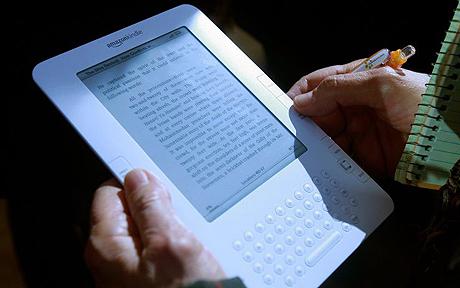Simple Future / Egyszerű Jövő / OBJEKTÍV IGEIDŐ
(1) Használata:
1. Jövő idejű cselekvés kifejezésére, amit a beszélő a beszéd pillanatában dönt el. – „VÁLLRÁNDÍTÁS”
What will you do now?
2. Objektív, jövőre utaló kijelentésnél. – „SEMLEGES”
I will travel to Japan next week.
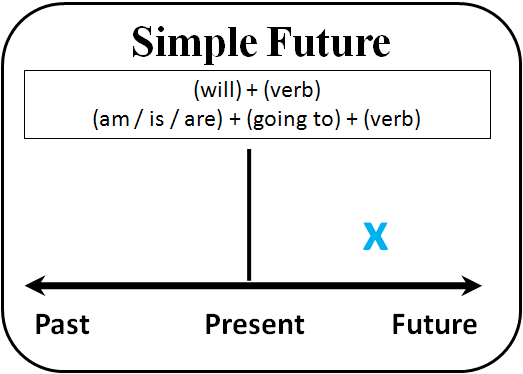
3. Szokásos, ismétlődő cselekvés a jövőben.
They will come and see us every week.
4. Jóslásnál.
Your test will be 5.
5. Ígéretnél.
I will do my homework.
(I will help you.)
6. Fenyegetésnél.
I will kill you.
(2) Képzése:
+ A + will + ige 1. alak
pl.: I will go to visit you.
— A + will + not + ige 1. alak
pl.: I won’t do my homework.
? Will + A + ige 1. alak?
pl.: Will you do the shopping?
(3) Időhatározók:
- tomorrow, tomorrow afternoon, the day after tomorrow
- next Saturday, next week, next month, next year
- soon
- in 2 weeks / in two weeks' time
- by tomorrow
- in the (near) future
- + olyan kifejezések: probably, I expect, I’m (not) sure, I (don’t) think / I wonder, I bet
![]() Exercise 1:Future Simple Exercise
Exercise 1:Future Simple Exercise
![]() Exercise 2: Future Simple with Mr Bean
Exercise 2: Future Simple with Mr Bean
![]() Exercise 3: Future Simple Movie
Exercise 3: Future Simple Movie
FONTOS:
1. Present Tense használatos a jövő idő kifejezésére a következő kötőszók után (nem lehet shall / will!)
after, before, as soon as, till, until, as when, while, if, when
2. X to be going to V1 olyan jövő idejű cselekvés kifejezésére:
a., amelyet SZÁNDÉK-unkban áll végrehajtani:
I have bought a lot of bricks. I’m going to build a house.
b., előre látható, közeli esemény beköv. (időjárás, szülinap):
Look at those black clouds! It’s going to rain.
![]() Exercise 4: To be going to Movie
Exercise 4: To be going to Movie
3. „X to be to V1” küszöbön álló, előre várható jövő idejű cselekvés kifejezésére
The Prime Minister is to visit our country next week.
![]() Exercise 5: Structures for Expressing Future Exercise
Exercise 5: Structures for Expressing Future Exercise
Future Continuous / Folyamatos jövő / MAJD ÉPPEN IGEIDŐ

(1) Használata:
1. A jövő egy adott időpontjában vagy időtartamában folyamatosan zajló cselekvés kifejezésére.
I will be swimming at 5 o’clock tomorrow. - ÉPPEN
2. Huzamosabb ideig tartó cselekvés a jövőben.
I will be working all night tomorrow. - EGÉSZ
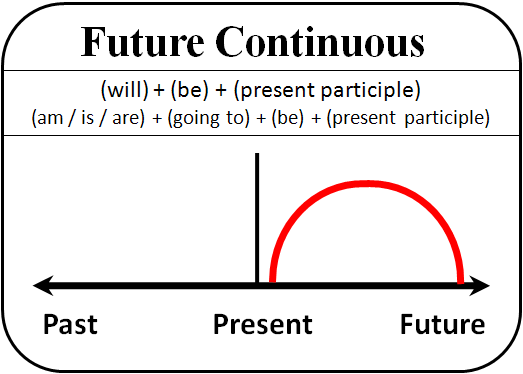
3. A jövőben két cselekvés összehasonlításakor, amikor az egyik folyamatosan történik, a másik egyszeri cselekvés.
I will be reading when he comes home.
4. Párhuzamosan folyó, egyaránt tartós jövő idejű cselekvések közül a főmondat cselekvésének kifejezésre.
I will be sweeping the floor while you are beating the carpets.
(2) Képzése:
+ A + will + be + ige + -ing
pl.: I will be watching TV from 8:00 to 10:00.
— A + will + not + be + ige + -ing
pl.: She will not be reading, when her sister goes away.
? Will + A + be + ige + -ing?
pl.: Will you be playing basketball tomorrow afternoon?
(3) Időhatározók:
- at this time
- this time tomorrow / next year / next September
- all night
- from … to…,
- while, when
- in the meantime
![]() Exercise 6: Future Continuous Exercise
Exercise 6: Future Continuous Exercise
Future Perfect /Befejezett jövő / JAJ, MIRE IGEIDŐ

(1) Használata:
1. A cselekvés egy másik jövő idejű cselekvés kezdete előtt vagy egy adott időpontra már be fog fejeződni.
By the end of the month, he will have been here for 10 years.
By the time we arrive, the concert will have started.
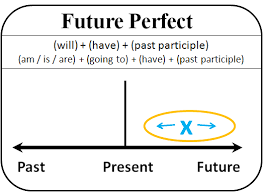
By / by the time után Simple Present-et használunk!
2. A cselekvés egy másik jövő idejű cselekvés előtt már elkezdődik és azon túl is tart.
We will have been there for two hours by the time you get back.
3. A jövő adott időpontjában befejeződő cselekvés kifejezésére gyakran használunk Present Perfect-et a következő kötőszók után: as soon as, till, until, before, after, as
I will post the letter as soon as I have written it.
(2) Képzése:
+ A + will + have + ige 3. alak
pl.: By the end of the year, my father will have been 43 years old.
— A + will + have + not + ige 3. alak
pl.: He won’t have finished his work by tomorrow.
? Will + A + have + ige 3. alak?
pl.: Will you have read the book by next week?
(3) Időhatározók:
- by …
- by that time
- by the time + Present Simple
![]() Exercise 7: Future Perfect Exercise
Exercise 7: Future Perfect Exercise
Future Perfect Continuous / Folyamatos-befejezett jövő / TESZT IGEIDŐ

(1) Használata:
1. A cselekvés a jövőben fog kezdődni, és egy későbbi cselekvés megindulásáig, vagy azon túl is tartani fog.
We will have been doing our test for two hours by the time you arrive.
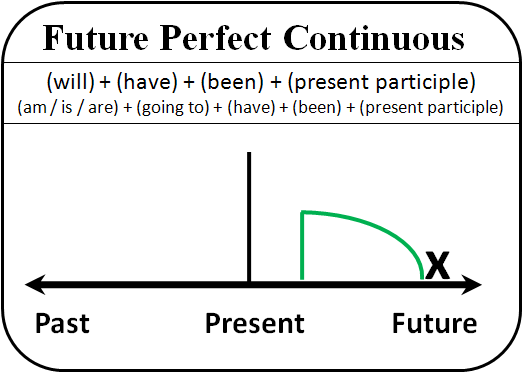
2. A cselekvés a jövőben fog kezdődni, és egy későbbi időpont előtt fog befejeződni, vagy azon túl is fog tartani.
By the end of the next month, he will have been working here for 10 years.
(2) Képzése:
+ A + will + have + been + ige + -ing
pl.: By the end of January we will have been living here for 8 years.
— A + will + not + have + been + ige + -ing
pl.: He won’t have been working here for 1 year by the end of the week.
? Will + A + have + been + ige + -ing?
pl.: Will you have been going in this school for 5 years by the end of the year?
(3) Időhatározók:
- for és by együtt!
![]() Exercise 8: Future Perfect vs Future Perfect Continuous Exercise
Exercise 8: Future Perfect vs Future Perfect Continuous Exercise
![]() Exercise 9: Future Continuous vs Future Perfect Continuous Exercise
Exercise 9: Future Continuous vs Future Perfect Continuous Exercise
![]() Exercise 10: Translation Future Tenses
Exercise 10: Translation Future Tenses
![]() Exercise 11: Future Tenses Movie
Exercise 11: Future Tenses Movie
![]() Exercise 12: All Tenses
Exercise 12: All Tenses
![]() Exercise 13: Translation All Tenses
Exercise 13: Translation All Tenses
![]() Exercise 14: All Tenses Movie
Exercise 14: All Tenses Movie
